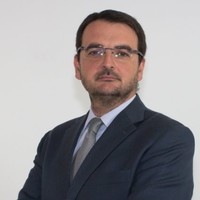The Growth Mindset

Reading Time: 3 minutesIs a successful professional born or made? Today we talk about how mindset influences professional development.
One of the most influential books in psychology, which has radically transformed how we view personal development, learning, and our own potential, is “Mindset: The New Psychology of Success” by Carol Dweck, a renowned American psychologist. In this work, Dweck challenges the long-held belief (still common today) that suggests mastering certain skills and abilities is only possible if we are naturally born with the talent for them.
The concept of mindset plays a pivotal role in shaping our actions and our approach to life’s challenges. Dweck differentiates between two primary mindsets: the fixed mindset and the growth mindset. While no one is entirely fixed or growth-oriented, the attitudes associated with these mindsets fundamentally influence how we approach key areas, such as:
One of the most influential books in psychology, which has radically transformed how we view personal development, learning, and our own potential, is “Mindset: The New Psychology of Success” by Carol Dweck, a renowned American psychologist. In this work, Dweck challenges the long-held belief (still common today) that suggests mastering certain skills and abilities is only possible if we are naturally born with the talent for them.
The concept of mindset plays a pivotal role in shaping our actions and our approach to life’s challenges. Dweck differentiates between two primary mindsets: the fixed mindset and the growth mindset. While no one is entirely fixed or growth-oriented, the attitudes associated with these mindsets fundamentally influence how we approach key areas, such as:
- Setting goals
- Defining success
- Dealing with failure
- Understanding the role of effort
What is a mindset?
Mindset refers to a belief, and like any belief, it can be changed. Our beliefs shape not only who we think we are but also who we believe we can become. Often, these beliefs create self-imposed limits, as reflected in the phrase, “I did it because no one told me it was impossible.” A growth mindset pushes us to strive for the best version of ourselves, while a fixed mindset views us as a finished product, unable to grow further. Below, we explore the main differences between the fixed and growth mindsets across several key dimensions:Abilities
- Fixed Mindset: Intelligence and talent are viewed as static. People believe they have a set level of ability from birth.
- Growth Mindset: Intelligence and talent can be developed with effort and hard work.
Motivation
- Fixed Mindset: Individuals are concerned with appearing smart. They seek constant validation of their intelligence and abilities.
- Growth Mindset: There is a genuine passion for learning, driven by curiosity and self-improvement.
Challenges
- Fixed Mindset: Challenges are avoided due to fear of failure, as failure threatens the image of being smart. Individuals prefer staying in familiar territory.
- Growth Mindset: Challenges are seen as opportunities to grow and test one’s abilities. These individuals enjoy stepping out of their comfort zones.
Obstacles
- Fixed Mindset: People give up easily when faced with obstacles, believing they lack the innate ability to overcome them.
- Growth Mindset: Persistence is a defining characteristic, as they keep trying and pushing through difficulties.
Effort
- Fixed Mindset: Effort is seen as unnecessary. If you’re truly talented, you shouldn’t need to try hard. Their energy is spent proving how capable they are.
- Growth Mindset: Effort is considered a crucial part of success. Energy is focused on improving and learning.
Feedback
- Fixed Mindset: Defensive when receiving criticism. Constructive feedback is often ignored, as they don’t believe it can change their inherent talent.
- Growth Mindset: They welcome feedback and use it as a tool for growth and improvement.
The Success of Others
- Fixed Mindset: Success in others is seen as a threat, leading to insecurity. They often surround themselves with mediocrity to avoid feeling inferior.
- Growth Mindset: They are inspired by the success of others and use it as a learning opportunity. They seek to be around people who challenge them to grow.
Failure
- Fixed Mindset: Failure is perceived as a reflection of their worth. A rejection, such as not getting a job, is seen as a personal failure, damaging their self-esteem. They avoid further risks for fear of confirming their inadequacy.
- Growth Mindset: Failure is simply the result of their actions at that particular moment. It’s not seen as personal or permanent. Instead, it indicates a need for more effort or better preparation. They focus on what they do, rather than who they are.


